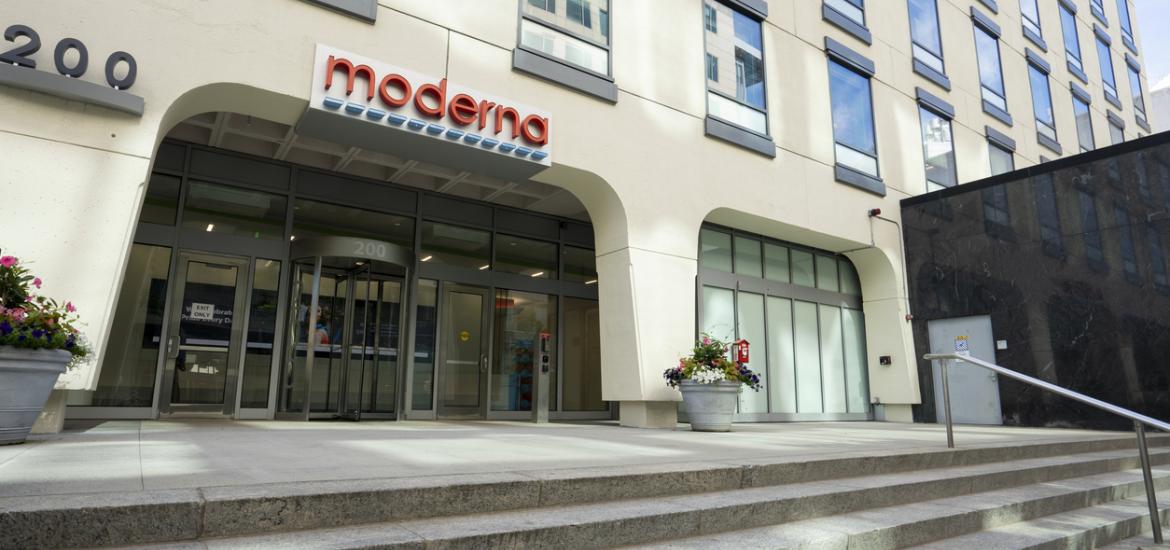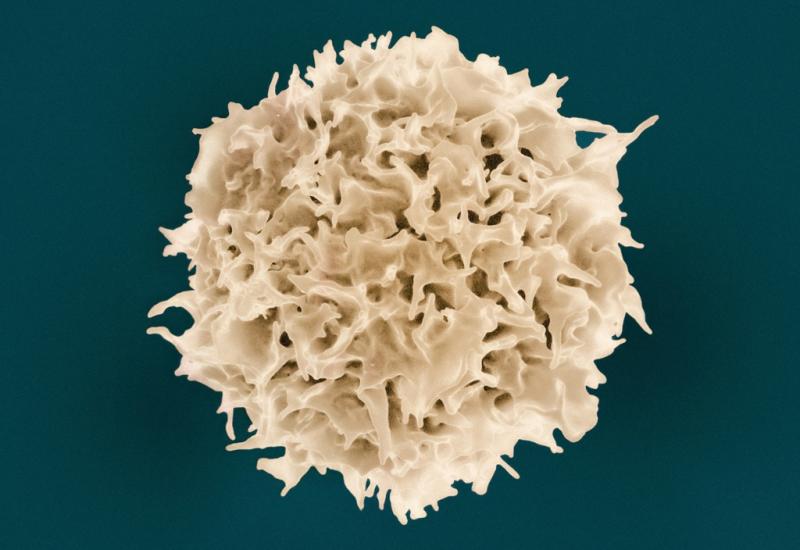
Moderna returns to oncology
Three off-the-shelf mRNA therapies join intismeran autogene.
Three off-the-shelf mRNA therapies join intismeran autogene.

After taking a step back last year Moderna seems to be positioning itself for a renewed push into oncology. While the group's first-quarter earnings on Thursday revealed continued cost cutting in the wake of an evaporating market valuation, Moderna highlighted the way cancer immunotherapy could help it recapture some of its lost glory.
Central to this effort is the Merck & Co-partnered personalised neoantigen immunotherapy intismeran autogene, but three other mRNA-based projects are now set to play key supporting roles. These are off-the-shelf, in contrast to intismeran autogene, but all four aim to boost immune system activity and provide a companion for other therapies.
Of particular interest is mRNA-4359, whose phase 1/2 study is now being prioritised and moved into its phase 2 portion. mRNA-4359 encodes PD-L1 and IDO antigens, with the aim of "training" the immune system to recognise their upregulation by cancer cells and/or T regulatory cells, and thus is seen as a combo partner for Keytruda.
However, it's too early to gauge mRNA-4359's promise, as the best that could be said about preliminary data from 16 patients at last year's ESMO was that 50% reported stable disease. Moderna promises more phase 1 data this year that might help elucidate mRNA-4359's mechanism of action, while starting the phase 2 part, with or without Keytruda, in first-line melanoma and NSCLC.
Shake-up
Prioritisation of mRNA-4359 comes months after Moderna announced a major shake-up, cutting R&D spending and discontinuing several projects, including two in oncology. These were also off-the-shelf immunotherapies that encoded specific cancer antigens: mRNA-5671 (KRAS) and mRNA-2752 (Ox40L, IL-23 and IL-36γ).
That move was accompanied by the disappointing revelation that the accelerated approval pathway for the on-demand immunotherapy intismeran autogene in adjuvant melanoma was a non-starter.
Still, Moderna isn't about to give up on intismeran autogene, which until recently was known by the lab code mRNA-4157. On Thursday the group highlighted the recent start of a phase 2 study in high-risk non-muscle invasive bladder cancer, in addition to ongoing adjuvant trials in melanoma, NSCLC, muscle-invasive bladder and kidney cancers.
Focusing neoantigen therapies on early stages of disease makes sense given that these feature relatively low tumour burden. Moderna's key rival, BioNTech, recently found this out when its personalised neoantigen project autogene cevumeran failed in first-line metastatic melanoma. However, BioNTech isn't studying autogene cevumeran in non-muscle invasive bladder cancer.
Moderna’s first-quarter oncology highlights
| Project | Mechanism | Note |
|---|---|---|
| Intismeran autogene (mRNA-4157) | Personalised neoantigen immunotherapy | Partnered with Merck & Co; ph2 Interpath-011 study, BCG combo in BCG-naive NMIBC, started Mar 2025 |
| mRNA-4359 | Off-the-shelf immunotherapy encoding PD-L1 & IDO | Ph1/2 study starting ph2 stage, +/- Keytruda in 1st-line melanoma & NSCLC |
| mRNA-4106 | Off-the-shelf immunotherapy encoding multiple shared tumour antigens | Ph1 study, checkpoint combo, has dosed its first patient |
| mRNA-4203 | Off-the-shelf immunotherapy encoding PRAME | Partnered with Immatics; ph1 IMA203 combo has open IND |
Source: OncologyPipeline.
The two other oncology projects highlighted by Moderna are mRNA-4106, which encodes undisclosed shared tumour antigens, and mRNA-4203, which encodes PRAME.
The former has dosed its first patient in a phase 1 study investigating it alone or in combination with checkpoint blockade, while the latter's phase 1 is up on clinicaltrials.gov, but has yet to begin. mRNA-4203 is the result of Moderna's 2023 tie-up with Immatics, and is designed to boost the activity of Immatics' PRAME-directed engineered T-cell receptor therapy IMA203.
Moderna now needs multiple successes to stem an evaporation of investor confidence that has seen its stock fall 35% so far this year, and its cost-cutting plan continues. Both it and BioNTech are way off the highs of their Covid heyday, but BioNTech is now valued at over double Moderna's $10bn market cap.
4270













